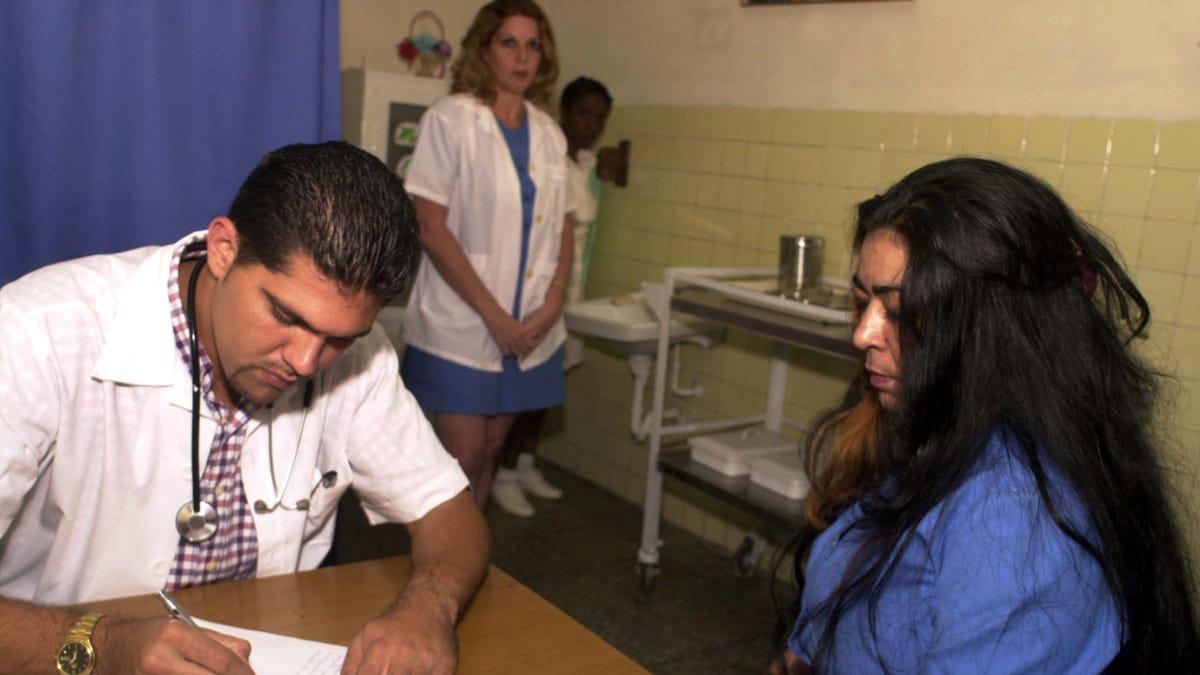
(Getty Images)
A curious thing happened when my doctor decided to give away free medical care. Doctor Marlow Hernandez, a refugee from Cuba who’s become a highly successful practitioner in South Florida after arriving penniless, decided this week that he wanted to give back.
Cano Health Center opened its doors to anyone making less than $20,000 a year, or families making less than $40,000. The aim was to offer medical care to patients without insurance, but a funny thing happened.
The center became swamped. It was packed not only with uninsured patients, but with insured patients as well. The better term is one I suspect we’ll be hearing more and more in the coming year — “underinsured.”
Too many patients still don’t know where to turn, and often end up desperate and confused, while their doctors grow more and more frustrated.
What is underinsured? It’s a problem more and more of America’s doctors are now seeing for themselves as the Affordable Care Act kicks, or better yet, lags into second gear. To be fair, there are now more Americans who are insured, but it’s often with an insurance policy that doesn’t provide them quality medical care.
The culprit: that insufferable and unavoidable mandate we’ve all come to know as the “medical deductible.” Fact is, many patients are now foregoing doctor’s visits for fear of having to pay thousands of dollars in up-front deductibles they simply can’t afford. What’s worse is that many are foregoing procedures they may need to lead healthier lives ... or more importantly to avoid catastrophic illnesses.
Take the case of Samantha. (We’re not using her real name to protect her privacy.) She hasn’t seen a doctor or had even gotten a check-up in two years. She couldn’t afford it, which is why she took advantage of “free health care day” at the Cano Medical Facility.
“It broke my heart to have to tell her what I found,” said Dr. Hernandez. “She has an abdominal mass the size of a baseball just below her abdomen. If it’s malignant and aggressive, it may not be survivable.”
Samantha is not alone. Like her, there are tens of thousands of patients who are uninsured or, doctors argue, they are “just as apt to be underinsured” because of Obamacare.
“It’s an act of charity and I’m glad we were able to do it,” said Hernandez, who is both board certified in internal medicine and also holds a Master’s Degree in Public Health. “I never expected to find such need.”
According to Hernandez, it’s the extent of the conditions and illnesses that he treated that surprised him:
- A woman in her 20s who thought she was pregnant but couldn’t afford an obstetrician. She was right and was in fact more than 36 weeks along.
- A man in his 60s who says he’s been in so much pain for weeks he didn’t know where to turn. His diagnosis: shingles.
- Another man in his 40s presented with severe pain in his back. The immigrant worker described himself as “too busy taking care of my family to find a doctor.” He was diagnosed and treated for what appears to be a gall bladder disease.
- A woman in her 30s came with her two children. She was one of many who arrived with kids. The family had issues from diabetes to anemia. And the mom showed risk factors for a stroke.
- A man in his late 40s could not quit smoking and was paying the price as an asthmatic. He was crying for help and wanted to quit for his grandchildren. He was treated, given inhalers and medication and left with what seemed newfound hope.
We cannot share the names of the patients who were willing to tell us their stories, in fact some of their data has been altered slightly to further protect their identities, but unfortunately they represent a cast of millions. There are still tens of millions of Americans who remain outside the massive bubble that is America’s overly fragmented health care system.
Too many patients still don’t know where to turn, and often end up desperate and confused, while their doctors grow more and more frustrated. Thousands of doctors around the country –doctors like Marlow Hernandez – are trying to make a difference.
“I’m a doctor, we want to help patients,” says Hernandez. “But most of all, we want to help create a better system that allows all Americans to get quality health care.”
But as of now, says Hernandez, “we’re simply still not there.”








































